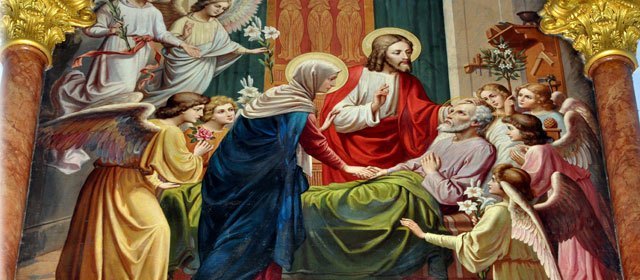
Anointing of the Sick
Welcome
Among the seven sacraments there is one especially intended to strengthen those who are being tried by illness, which we call the Anointing of the Sick.
The videos below answer questions you may have about Anointing of the Sick.
What is the Anointing of the Sick?
Through the Anointing of the Sick people receive forgiveness for their sins and comfort in their suffering; they are restored in spirit; and sometimes they even experience the return of physical health.
According to the Catechism of the Catholic Church:
The Anointing of the Sick "is not a sacrament for those only who are at the point of death. Hence, as soon as anyone of the faithful begins to be in danger of death from sickness or old age, the fitting time for him to receive this sacrament has certainly already arrived." (CCC, 1514)
The special grace of the sacrament of the Anointing of the Sick has as its effects: the uniting of the sick person to the passion of Christ, for his own good and that of the whole Church; the strengthening, peace, and courage to endure in a Christian manner the sufferings of illness or old age; the forgiveness of sins, if the sick person was not able to obtain it through the sacrament of penance; the restoration of health, if it is
conducive to the salvation of his soul; the preparation for passing over to eternal life” (CCC 1532).
Who Can Be Anointed?
The Rite of Anointing tells us there is no need to wait until a person is at the point of death to receive the Sacrament. A careful judgment about the serious nature of the illness is sufficient. Any baptized Catholic can receive this Sacrament.
The person receiving an anointing must be a baptized Catholic. The following are situations in which one would consider contacting a priest to receive the Anointing of the Sick:
Someone facing major surgery
A person diagnosed with a terminal illness
The frail at any age, or the elderly
People who are at the end time of their lives
Acute patients in the care of a hospital, especially those in the Emergency Room or Intensive Care Unit
Who is a Parishioner
Each Catholic parish has geographical boundaries. The Pastor of the parish is responsible for the souls within that boundary, whether they attend Mass or not. You are automatically a parishioner if you live within the boundaries. That is the parish where you can request the Sacraments – Baptism, First Communion, Confirmation, Marriage and Funeral.
You can also be a parishioner if you are outside of the boundaries but you have made St Mary’s the parish where you come for Mass every Sunday. You are a parishioner by participation.
What does it mean to ‘register’ at a Parish?
When you complete a Registration Form, provided by the parish office, you are registered as a Parishioner.
Why should I register as a Parishioner?
The process of registration provides the parish with your contact information. It also allows the administration staff to provide an annual tax receipt of your charitable donations.
Do I just register myself or my whole family?
If your whole family in your household participates in Mass with you, it is a good idea to add all their names. If your spouse is not Catholic, or does not attend Mass, and if some of your children no longer attend Mass, you may decide not to include them in your registration.
How do I register as a Parishioner?
You can e-mail the Parish office at stmarysbr@archtoronto.org and a staff member will forward you a Registration form, which you can then e-mail back.
Who Can Administer the Sacrament?
Only priests and bishops can administer the Sacrament of the Anointing using the special oil blessed at the Chrism Mass. The essence of the sacrament lies in the actual anointing and the short prayer, which accompanies the anointing. In giving the sacrament, the priest anoints the sick person on the forehead and hands. According to the Catechism of the Catholic Church:
Only priests (bishops and presbyters) are ministers of the Anointing of the Sick. 131 It is the duty of pastors to instruct the faithful on the benefits of this sacrament. The faithful should encourage the sick to call for a priest to receive this sacrament. The sick should prepare themselves to receive it with good dispositions, assisted by their pastor and the whole ecclesial community, which is invited to surround the sick in a special way
through their prayers and fraternal attention (CCC, 1516).
